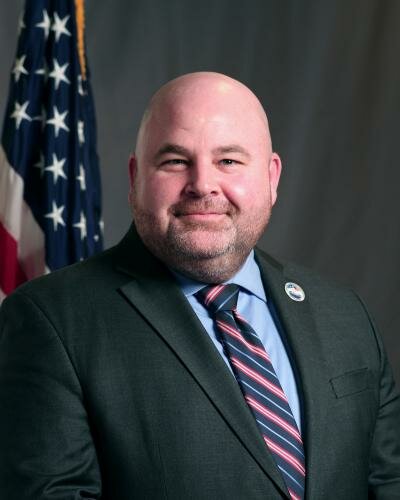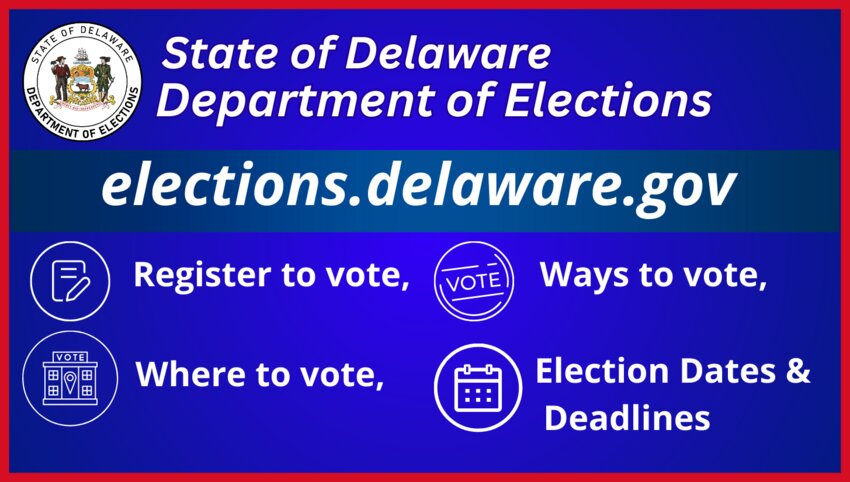As Delaware's primary election approaches, poll workers vital part of process
DOVER — Delaware’s Sept. 10 primary election is just a month away.
And the general election is set for Nov. 5
So, as Delawareans visit the polls, it brings demand for an …

You must be a member to read this story.
Join our family of readers for as little as $5 per month and support local, unbiased journalism.
Already a member? Log in to continue. Otherwise, follow the link below to join.
Please log in to continue |
As Delaware's primary election approaches, poll workers vital part of process
DOVER — Delaware’s Sept. 10 primary election is just a month away.
And the general election is set for Nov. 5
So, as Delawareans visit the polls, it brings demand for an essential component of Election Day: poll workers.
Aug. 1 marked National Poll Worker Recruitment Day for the U.S. Election Assistance Commission, a bipartisan federal agency that works to ensure a smooth Election Day is had all around the country.
The day of action seeks to prepare election officials throughout the nation and encourage citizens to participate in the election process by becoming a poll worker ahead of when Americans in all states visit the polls this November.
Benjamin Hovland, chairman of the federal agency, says the national recruitment effort spurred during the COVID-19 pandemic, because as traditional poll workers – which tend to be older citizens – could not participate due to the risks of the pandemic, the country needed a new generation of Americans to assist in the election process.
“(It’s been) a big success. We saw a new generation of Americans step up to serve, which was really awesome. And what we heard back from election officials was that it had been valuable,” Mr. Hovland told the Daily State News.
According to the 2022 Election Administration and Voting Survey, 54.1% of jurisdictions had a “difficult” or “very difficult” time recruiting poll workers.
Further, the average poll worker is aged 61 and older and 16.7% percentage of poll workers were first time workers.
So far, the occasion has been recognized in 43 states and the District of Columbia. Mr. Hovland emphasized that, since elections are run locally throughout the country, poll workers are your neighbors who are taking time out of their day to serve the community and ensure a functioning democracy.
In Delaware, more than 3,200 poll workers are needed on general Election Day, according to the state Department of Elections.
To become an election officer, individuals can fill out an application form on the department’s website and send it to the election office of their respective county. The agency’s website can be accessed by visiting elections.delaware.gov.
If an individual wishing to become a poll worker is not 18 years old, a parent or guardian must sign the application form as well. If you are a college student and non-registered Delaware voter, you can still apply to become a poll worker in the county you attend college.
There are a few positions you can apply for in the First State; serving as an elections inspector yields compensation of $400, and Delawareans can make $325 as a judge and $300 as a clerk.
When participating, the state Department of Elections requires individuals to arrive at 6 a.m. to make sure the polls open at 7 a.m. Since polls close 8 p.m., election workers typically work until about 9:30 p.m. There are no split shifts, and election officers cannot leave the polling place at any time while polls are open.
In a time of political polarization, the U.S. Election Assistance Commission is also continuing to prioritize poll worker safety. Mr. Hovland noted that, the election official experience is valuable for participants, and the bipartisan nature of each team lends itself to a positive experience and smooth election process.
“When somebody’s coming in, it doesn’t matter who they’re there to vote for, it’s that they’re there to vote, and you get to play a role; checking them in, getting them their ballot, and ultimately handing them that ‘I Voted’ sticker at the end of it, and thanking them for coming out,” the chairman said.
“You get to play a role in making those people have a positive experience on Election Day, and that’s a big deal. That matters for your community, matters for democracy, and matters for the people that came out to vote.”


 By
By 




